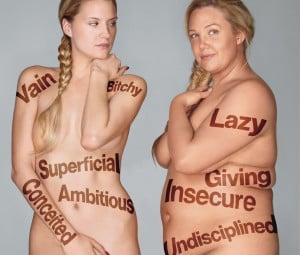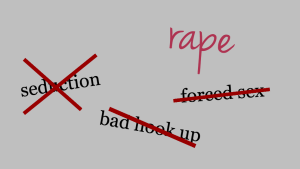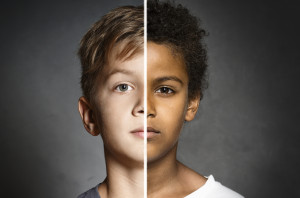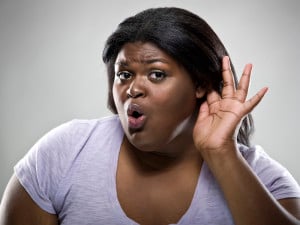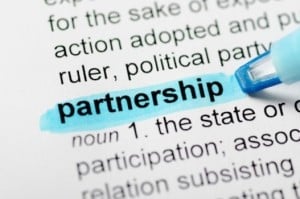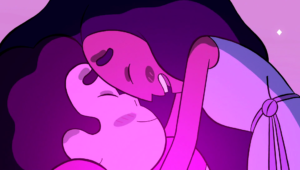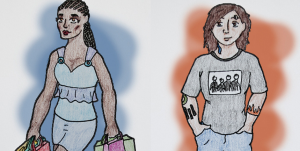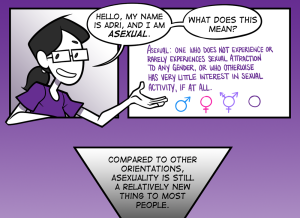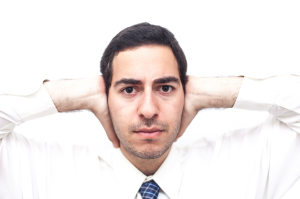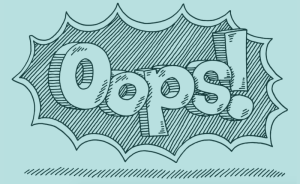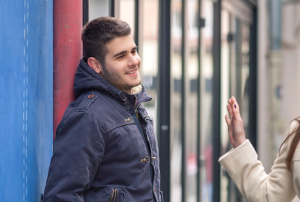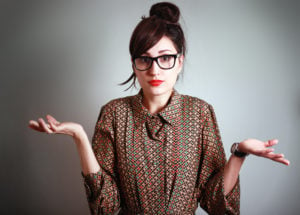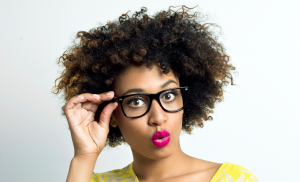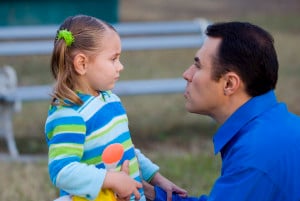Franchesca: People have actually said to me, “Are you mixed with something?”
Danielle: “You don’t even look black!”
Lily: “You have pretty big eyes for an Asian person.”
Delina: “Is that really your nose?” What?
Danielle: White beauty standards are when whiteness is the default and it becomes the cultural ideal for beauty.
Franchesca: It’s usually a slim nose…
Rekha: Having light skin.
Lily: Big eyes. Long lashes.
Delina: And hair that is the absolute opposite of mine.
Danielle: What’s wild is that if you’re white, you might not even see it because it’s so pervasive.
Franchesca: So this shade is nude. Spoiler alert: not all of us look like this when we’re naked.
Rekha: Ohh, nude-colored stockings. I mean, not for me, but for somebody for sure.
Lily: This is eyelid tape, or eye-charm. Charming because you can finally get those Western eyes you’ve always wanted.
Rekha: This is fair and lovely skin lightening cream.
Danielle: Look at how sad this lady is in the back. She’s so sad that she’s brown.
Rekha: First, she was sad and dark-skinned. Now, she’s scientifically more marketable.
Lily: What the [bleep] is this?
Franchesca: Apparently, if you use this, you can change your race.
Delina: Like, this is not a before and after.
Franchesca: It really starts to make you feel like you don’t belong, like who you are is different and not acceptable.
Danielle: There’s even a phrase within black communities called “good hair,” and “good hair” is hair that is not kinky, not difficult to comb, and more closely mirrors the silky or soft hair of a white person.
Franchesca: There’s absolutely nothing with my natural hair, and I remember, when I was in college, I started my locks, my uncle told me that there was no way I was going to get a job with my nappy hair. What was really messed up is I’m pretty sure he was trying to help me.
Delina: When I would interview, I would always pull my hair back and then I would show up to my first day like this, so then I’d be like, “Take a picture of me like this so this can be on my I.D.”
Rekha: Even globally, white beauty standards are a huge thing.
Lily: If you travel to China, there’s also just, like, white people on the billboards for like Chinese clothing lines, which is very weird.
Delina: Even in my own family, people would point out that my brother is like a little bit darker skinned than me. Why does that matter? If it was like a white family and one of the kids was tanner, no one would give a crap about that.
Lily: I have a family photo where it looks like they put the worst Instagram whitening filter on us and just turned it whiter and weirdly blurry.
Franchesca: Alright, so if you don’t believe me that white beauty standards are a thing, let’s play a little game. Do a Google image search for a “beautiful woman.” Let’s see here.
Rekha: White woman, white woman behind wall…
Lily: We got blondes, we got brunettes. Takes awhile, but you finally see a redhead.
Delina: There really is still nobody. This is crazy.
Lily: I see Jennifer Lopez. Does she count?
Franchesca: Now, Google image search “unprofessional hair style.” Oohh, a significantly larger percentage of black ladies!
Delina: I like that one. I’ve had that one.
Rekha: Another black woman, black woman, black woman, black woman.
Franchesca: This girl’s hair is really cute!
Danielle: The problem is that all of these social messages that you get about what is and who is beautiful influences who you think is beautiful. Representation matters, and it matters because we can raise entire generation of people who don’t carry this cultural baggage with them.
Rekha: Without representation, on a subconscious level, you don’t think you matter as much.
Franchesca: And so we have to see different representations of beauty, and women of color, and womanhood, so that we can know that who we are is just fine.
Delina: Like, legit, two different people’s legs. That’s crazy.





